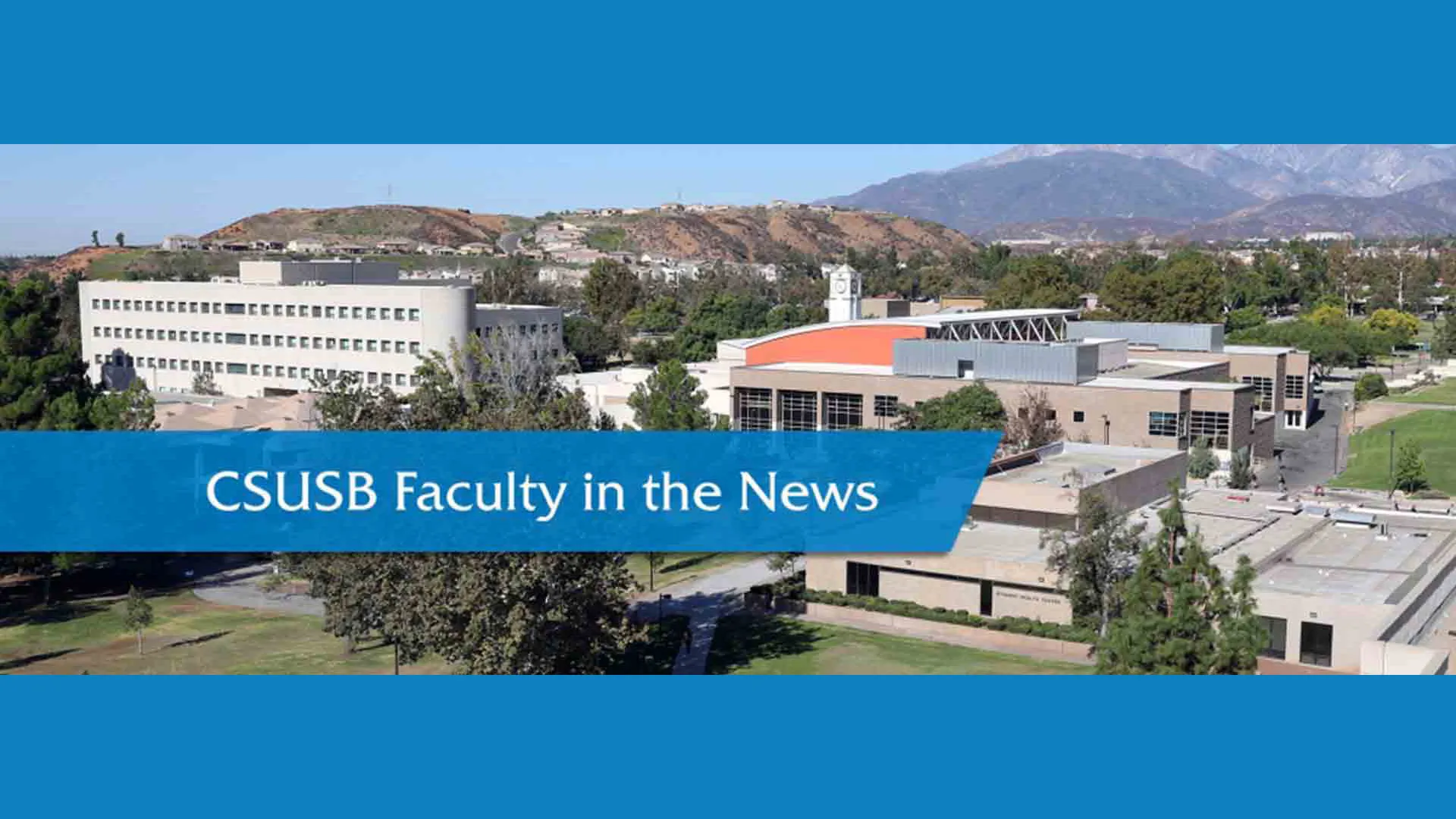NOTE: Faculty, if you are interviewed and quoted by news media, or if your work has been cited, and you have an online link to the article or video, please let us know. Contact us at news@csusb.edu.
‘The time to combat racism is still now,’ CSUSB professor writes
Psychology Today
March 22, 2021
Anthony Silard, associate professor of public administration, wrote for “The Art of Living Free:” “The major event of 2020 that put diversity squarely on the global political map, teeing it up for potential sweeping social change, was the murder of George Floyd. As I argued in a post soon after his death, it’s not that George Floyd died for a reason. It’s that it’s up to each of us to find a reason that enables us as individuals and collectively as a society to benefit from it.
“That is our responsibility and, in fact, our power. As Stephen Covey put it in his landmark book, ‘The Seven Habits of Highly Effective People,’ that ignited the self-help movement, we are ‘response-able.’ Able to choose our response to this tragic event.
“How you choose to respond is the most important question, and I can’t answer it for you. I can, however, share my own response. … ”
Read the complete article at “The time to combat racism is still now.”
CSUSB professor listed as panelist at IEEP’s annual State of the Region on March 25
Fontana Herald News
March 22, 2021
Barbara Sirotnik, director of the Institute of Applied Research and Policy Analysis at CSUSB and a member of the Inland Empire Economic Center, will be one of panelists discussing the region’s economic future as it emerges from the pandemic when the Inland Empire Economic Partnership hosts its annual State of the Region event virtually this Thursday, March 25 from noon to 2 p.m.
CSUSB professor discusses latest QAnon myth targeting China and Jewish people
Los Angeles Times
March 23, 2021
Experts on extremism, including CSUSB professor Brian Levin, are warning about a troubling shift in the right-wing QAnon movement toward a new vein of conspiracy that blends anti-Chinese and anti-Jewish tropes with fears of vaccines and a global plot to take over the world.
Those who study extremism said the transition by QAnon story peddlers is expected, but also signals that lies, racism and propaganda in American politics will continue to have staying power.
It is a “large tent of distrust of government and authority” that allows for “a variety of followers who oftentimes have general fears and grievances but not necessarily more specific types of commonalities,” said Levin, professor of criminal justice and director of the Center for the Study of Hate & Extremism at Cal State San Bernardino.
“It really creates an attractive opportunity for extremists to ensconce themselves into divisive, emotionally charged issues where they can focus on the grievances and the villain and not necessarily their own baggage,” Levin said. “QAnon is like a newt’s tail. It can constantly reconstitute itself.”
Levin said conspiratorial politics are growing not just at the national level, but in state and local issues as well.
Read the complete article at “QAnon now pushes alarming conspiracy myths targeting China and Jewish people.”
The center's latest report on anti-Asian American hate crimes was also cited in the following:
Asian Americans demand change after shootings: ‘I want people to finally hear us … not only when we’re trending’
KESQ Palm Springs
March 22, 2021
Supporters rallied across the country over the weekend saying attacks and harassment against Asian Americans that have surged during the pandemic must stop now.
Anti-Asian hate crimes have more than doubled during the pandemic, according to the Center for the Study of Hate and Extremism at California State University, San Bernardino.
'Forever foreign': AAPI Hoosiers push for justice amid virus-related racism, violence
Indiana Public Media
March 22, 2021
In January 2020, COVID-19 wasn’t an issue on most Americans’ minds. But Indiana University history professor Ellen Wu said she had a feeling that something that could endanger the Asian American community – beyond just a virus – was coming.
“I remember talking to my friends last Lunar New Year, and, and telling them I just had a really bad feeling based on what I know about U.S. history, that bad things were going to happen to Asian folks, Asian Americans," she said.
A report from the Center for the Study of Hate & Extremism at California State University-San Bernardino shows that hate crimes against Asian Americans and Pacific Islanders (AAPI) in 16 large American cities surged nearly 150% in 2020 alone.
Anti-Asian Racism in the United States | Violence non-stop against minorities
Luxiders Magazine (Berlin, Germany)
For many Asian-Americans, the crime fueled fears against anti-Asian hatred that has been increasing in the last years. Many activists pointed towards former President Donald Trump for being responsible for (at least some) the hostilities the community receives. Trump, during the pandemic, used terms such as “China virus”, “Wuhan virus”, and “Kung flu” in reference to the coronavirus pandemic, that originated in Wuhan, China.
A report by Stop Asian American and Pacific Islander Hate said it counted 3.795 anti-Asian hate incidents between March 19, 2020 (a few weeks after the pandemic started) and February 28, 2021. At least 500 incidents were reported on 2021. 68% of the reports targeted women and involved harassment.
In a different survey, conducted by police departments in 16 major cities, the Center for the Study of Hate and Extremism at Cal State San Bernardino reported 122 anti-Asian hate crimes last year. The number was a 149% increase compared to 49 in 2019. New York, Los Angeles, Boston and Seattle had the highest number of hate crime in the last five years.
This news clip and others may be viewed at “In the Headlines.”
